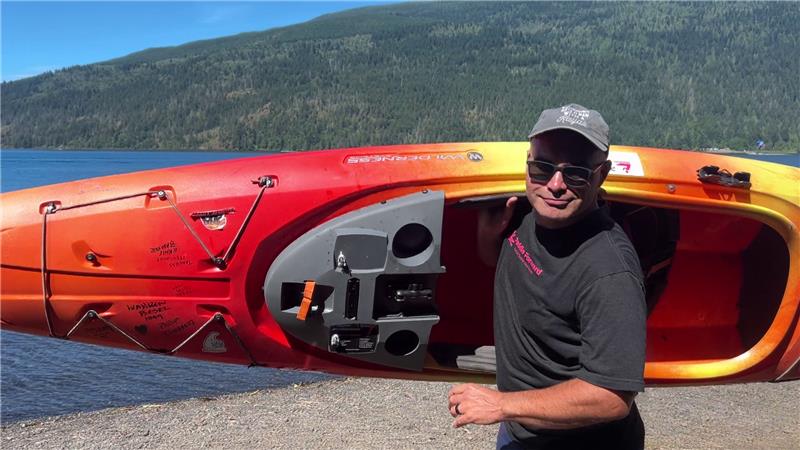In the quiet dawn hours when most of Chilliwack still sleeps, 37-year-old James Morrigan slides his kayak into the Fraser River, beginning another day of training for what he calls his “journey toward healing.” The former software developer is preparing for an ambitious 1,200-kilometer solo expedition down the Columbia River this August—a voyage dedicated not just to testing physical limits but to breaking the silence surrounding men’s mental health struggles.
“The river doesn’t care about your status or your stoicism,” Morrigan explains, adjusting his life vest as morning mist hovers over the water. “Out there, you’re forced to acknowledge every emotion—fear, doubt, exhilaration—there’s nowhere to hide from yourself.”
Morrigan’s journey from corporate burnout to mental health advocate began three years ago after a breakdown left him hospitalized for severe depression. Following months of therapy and medication adjustments, he discovered kayaking through a veterans’ rehabilitation program, despite having no military background himself.
“They took me in anyway,” he recalls with a slight smile. “Something about the rhythmic paddling, the focus required to navigate currents—it created space in my mind where the constant noise of anxiety couldn’t reach.”
The expedition, named “Currents of Change,” has already raised over $45,000 for mental health resources in rural British Columbia communities, where access to psychological support services remains severely limited. According to recent Canada Health statistics, men in remote regions wait an average of 18 months for initial mental health consultations, a delay often proving fatal.
Dr. Eleanor Whiting, clinical psychologist at Fraser Valley Mental Health Center, notes the significance of Morrigan’s approach. “What James is doing speaks directly to men who might never walk through a therapist’s door. He’s modeling vulnerability as strength, showing that seeking help isn’t weakness—it’s survival.”
The journey itself presents considerable challenges. Morrigan will navigate everything from calm stretches to dangerous rapids, camping along shorelines while documenting his experiences through daily video journals that will be shared on social media platforms. Local outfitter Rapid River Adventures has supplied specialized equipment, while several business sponsors have covered expedition costs to ensure all donations directly fund mental health initiatives.
“I’m not pretending paddling a river fixes clinical depression,” Morrigan emphasizes. “But what it’s teaching me is that moving forward doesn’t mean the water is always calm. Sometimes you navigate through storms, sometimes you have to portage around obstacles you can’t paddle through. That’s recovery—it’s not linear.”
Community response has been overwhelming. Local schools have incorporated the expedition into curriculum, teaching students about both river ecosystems and emotional intelligence. During weekend practice sessions, Morrigan often finds fellow kayakers joining him in solidarity, many sharing their own mental health stories for the first time.
Fraser Valley Crisis Line reports a 23% increase in male callers since Morrigan began publicizing his journey, suggesting his message is already resonating. “It’s the ripple effect,” explains crisis line director Samantha Torres. “One person’s openness creates permission for others to seek help.”
As his departure date approaches, Morrigan continues rigorous preparation, paddling increasing distances while consulting with river guides and mental health professionals. The expedition will conclude with a community event in Astoria, Oregon, where Morrigan plans to announce the establishment of a permanent funding initiative for rural mental health services.
“Rivers always find their way forward,” Morrigan reflects, looking out across the water. “Even when facing mountains, water doesn’t give up—it carves new paths, sometimes over millennia. What might change in our communities if we approached mental health with that same patient persistence?”
As dawn breaks fully over Chilliwack’s mountains, Morrigan paddles toward the horizon, each stroke representing both personal healing and a broader movement challenging how we view mental health support in Canada. His journey prompts an essential question: how many lives might be transformed if vulnerability became something we navigated together rather than in isolation?

























